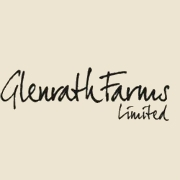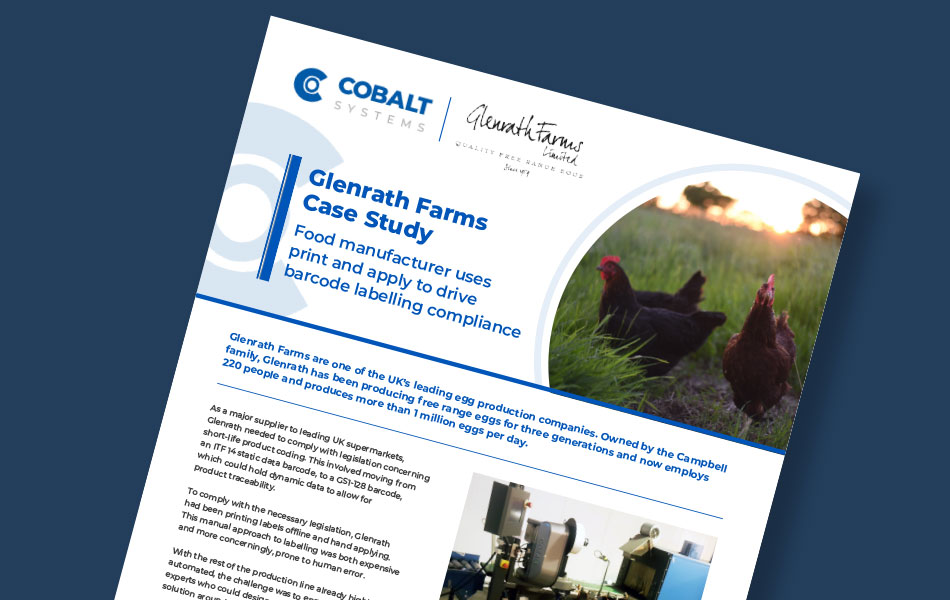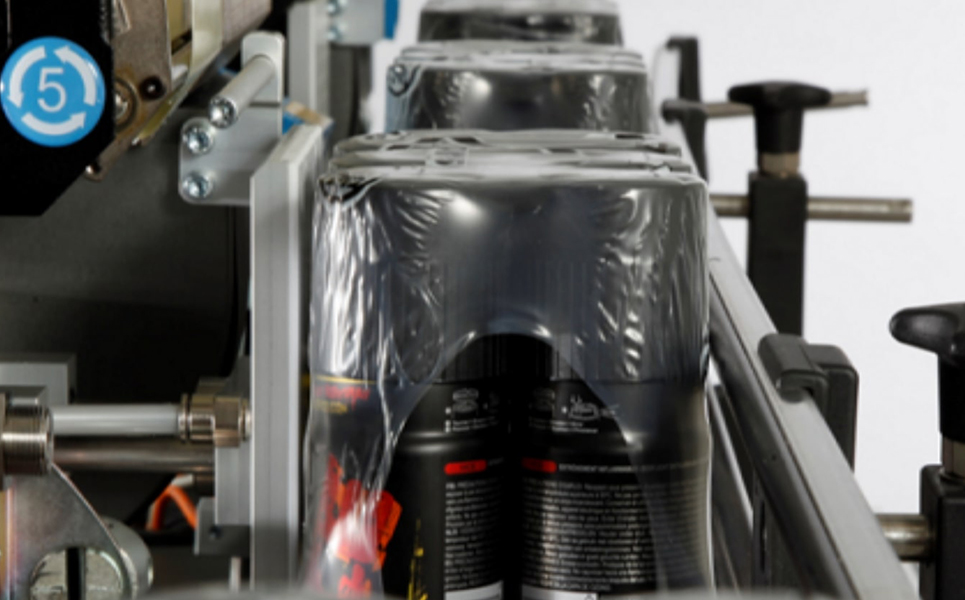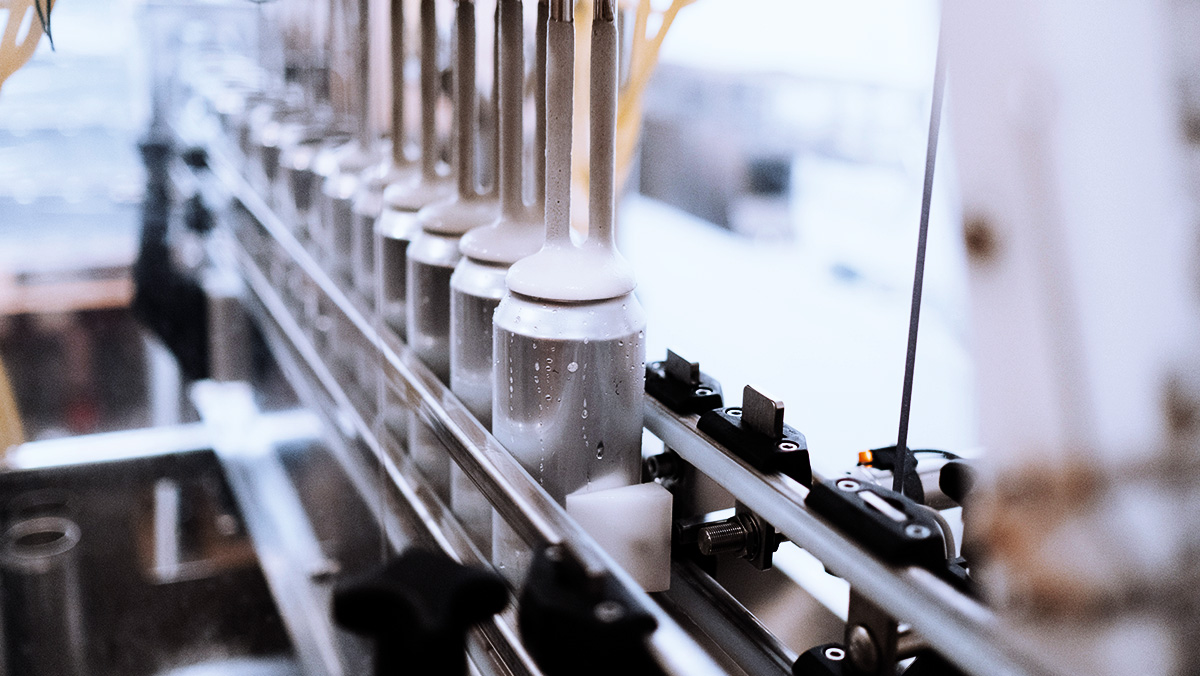Glenrath Farms are one of the UK’s leading egg production companies. Owned by the Campbell family, Glenrath has been producing free range eggs for three generations and now employs 220 people and produces more than 1 million eggs per day.
As a major supplier to leading UK supermarkets, Glenrath needed to comply with legislation concerning short-life product coding. This involved moving from an ITF 14 barcode, holding static data, to a GS128 barcode, which could hold dynamic data to allow for product traceability.
To comply with the necessary legislation, Glenrath had been printing labels offline and hand-applying. This manual approach to labelling was both expensive and more concerningly, prone to human error.
With the rest of the production line already highly automated the challenge was to engage Print & Apply experts who could design and install an equally advanced solution around the existing conveyor system.
Due to the delicate nature of eggs and to ensure all boxes were stable when palletised, mixed boxes on all the lines at Glenrath were sent through a single shrink-wrap tunnel and each box would need to be identified as it exited based on existing ITF 14 codes.
Faced with this challenge, Cobalt devised a solution that drew on its expertise not only in print and apply but also in machine vision technologies to build a system that could read the ITF 14 code through the shrink wrap. The system would then identify each product and generate and apply the correct label with a GS1-128 code to each case including batch number and date with full validation.
Alongside the challenges of incorporating highly sophisticated and accurate machine vision into a print and apply solution, Cobalt were tasked to design a solution that ensured no alterations would be required to the existing line and box orientation.
Chris Hunt, Sales Director at Cobalt Systems explains: “The degree of industrial automation already in situ at Glenrath, meant it was imperative for us to find a print and apply solution that worked within the parameters of the existing production line. Specifically that meant packs not being turned on the production line.”
“The way we work at Cobalt is highly consultative so we were able to engineer a solution rather than simply supply equipment.”
“Cobalt were appointed because they were able to provide Glenrath with what they wanted, whereas all the competition had insisted the packs needed to be turned pre-labelling.” said John Pearson, Head Engineer at Glenrath Farms.
The initial driver for Glenrath to partner with Cobalt was to deliver barcode labelling compliance effectively to satisfy food standards criteria on traceability and labelling. But although legislation was the initial motivation, the project succeeded in not only removing risk but also significantly reducing waste and cost from hand labelling – delivering an astonishing return on investment in just 30 weeks.
